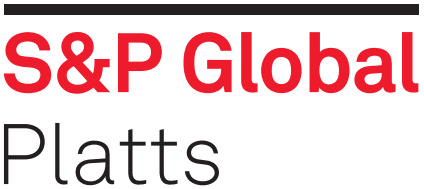
Only two steelmakers worldwide have carbon emissions reduction targets aligned with the Paris Agreement aim to keep global temperature increases to 2 degrees Celsius or below, an environmental disclosure agency analyst said Friday.
Moreover, some major steelmakers have shown no evidence of setting any emissions reduction targets so far, Tom Crocker, research analyst from CDP Global, told a virtual conference organized by the Brussels-based International Stainless Steel Forum, linked to the World Steel Association.
Nordic and US-based steelmaker SSAB and South Korea’s Hyundai Steel have set goals to achieve carbon neutrality between 2040 and 2050, with SSAB aiming to reach carbon neutrality by 2045 throughout its entire operations, Crocker noted in a presentation entitled Support for future investment versus carbon footprint development.
These are the only two steelmakers globally whose emissions targets are aligned with a pathway to keep the Earth’s temperature rises below 2 C, he said.
The premise of the Paris Agreement, signed in 2016 within the United Nations Framework Convention on Climate Change, is to hold the increase in the global average temperature to well below 2 C above pre-industrial levels and to pursue efforts to limit the temperature increase to 1.5 C above pre-industrial levels, recognizing that this would significantly reduce the risks and impacts of climate change.
While 60% of steelmakers have now set emissions reduction targets, and many have set internal carbon prices, a considerable number have apparently still not set climate targets, which they need to do to be transparent, Crocker said.
“Hesteel, Nucor, Gerdau, Baotou Steel and Beijing Shougang show no evidence of setting an emissions reduction target,” the CDP analyst told the event.
US-based Nucor and Brazil-based Gerdau Group did not immediately respond to email and telephone inquiries by S&P Global Platts seeking clarification on the analyst’s statement.
CDP describes itself as a not-for-profit charity that runs a global disclosure system for investors, companies, cities, states and regions to manage their environmental impacts and receives data from companies and organizations from more than 90 countries.
“The physical impacts of climate change are a significant risk for the steel sector,” Crocker said in his presentation. “Water stress” is already impacting 40% of steelmakers globally and securing a sustainable water supply will be of crucial importance for the sector in the future, he said.
In addition, “investors are increasingly scrutinizing the transparency of companies’ reporting on environmental issues, to allow for consistent benchmarking,” the CDP analyst said.
Many major steelmakers including ArcelorMittal and Tata Steel have now set internal carbon prices to use in their operations, Crocker said.
In the case of ArcelorMittal, the world’s largest steelmaker, the internal carbon price has been set at $18-30 per metric ton of carbon, while in the case of Tata the price range starts as low as $10/mt, according to data presented by the analyst.
— Diana Kinch




